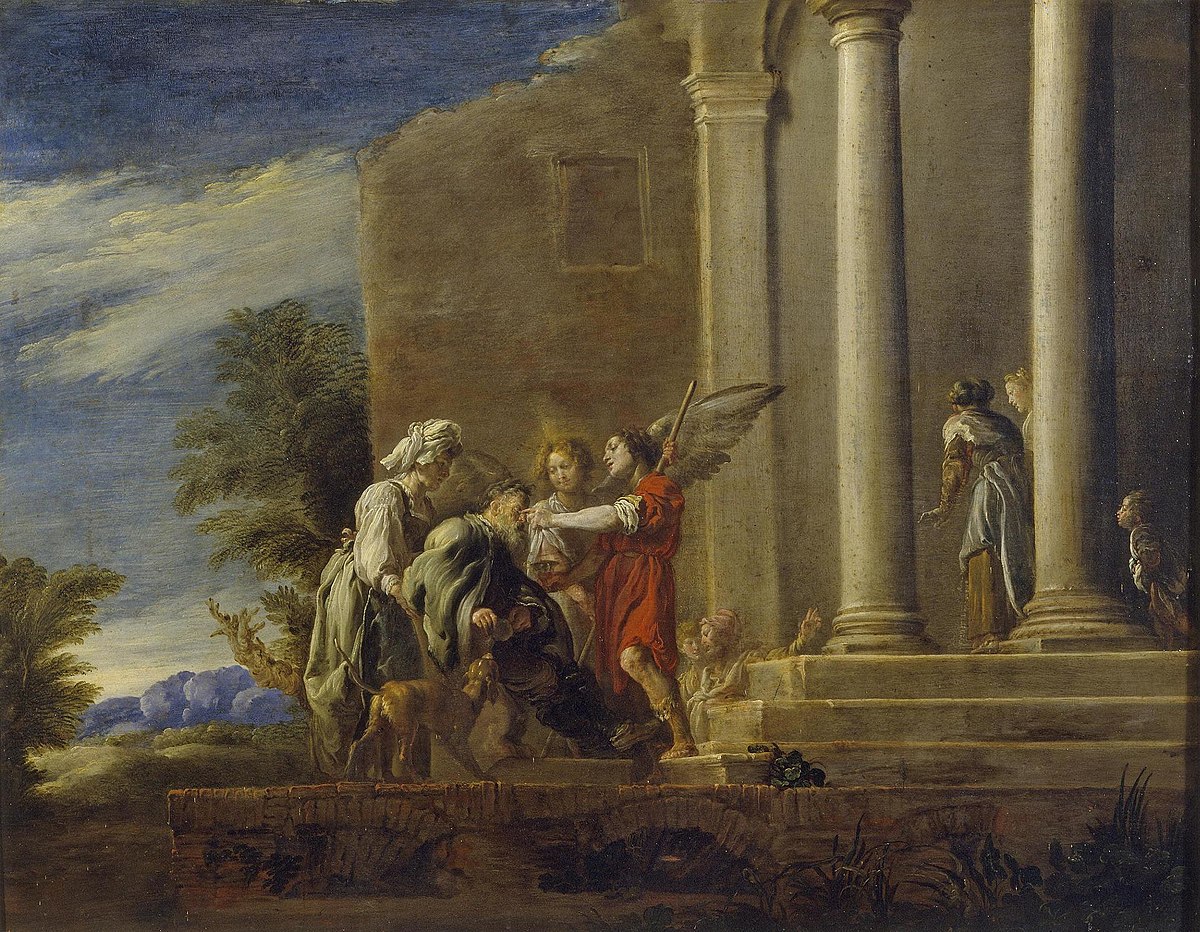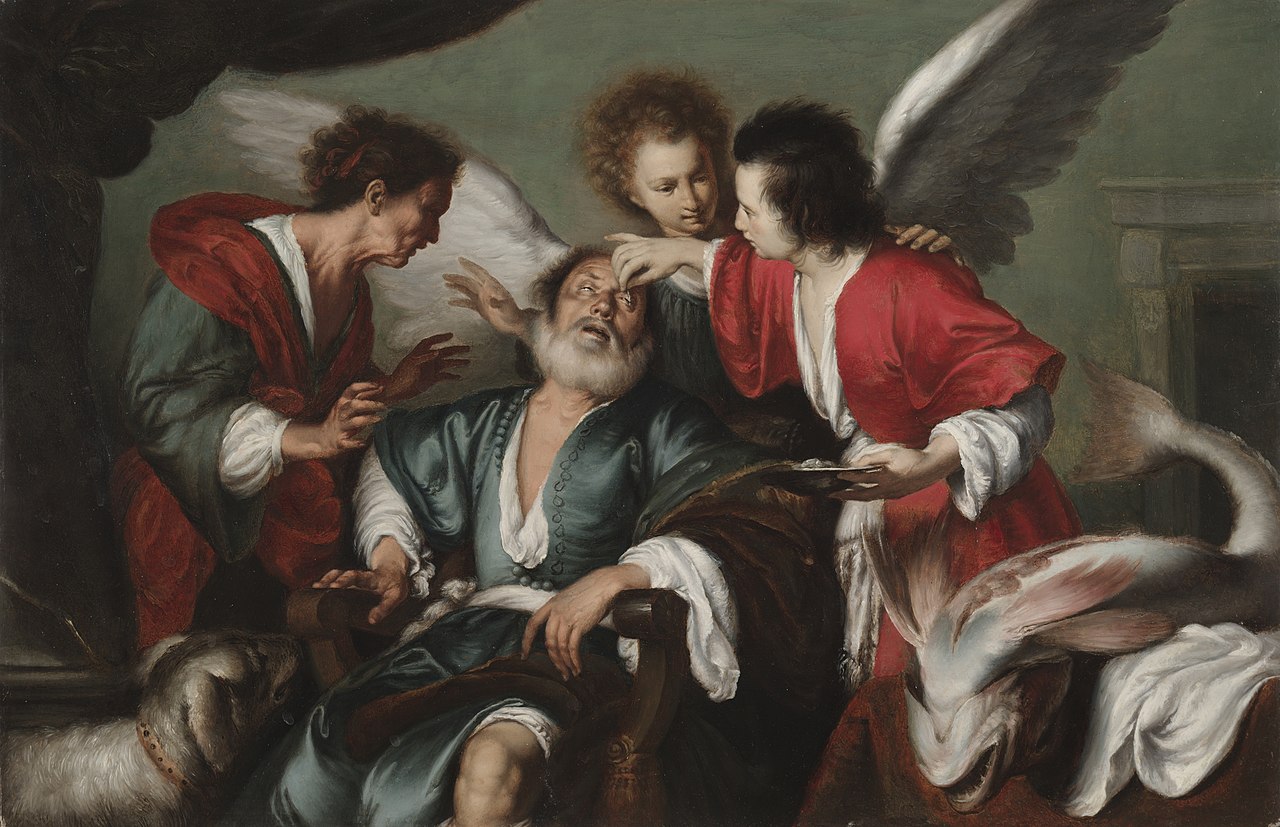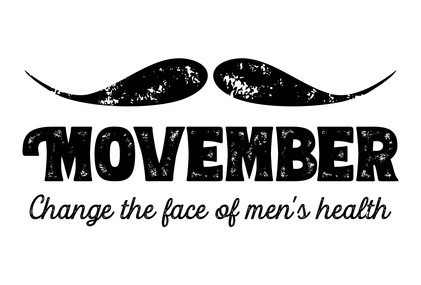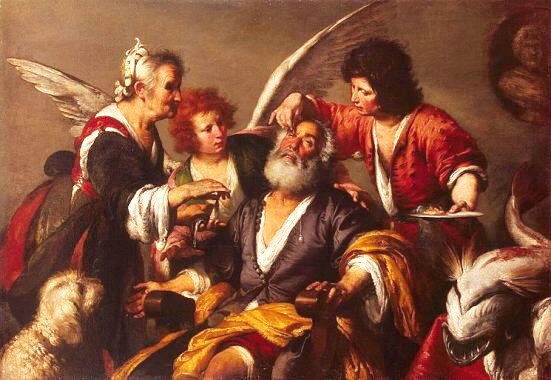Last night, I was in church for the Living Stations. The junior high kids were leading it and they did an awesome job. They even got me to shed a few tears along the way. I’m half Italian: we just do that! But what was it that got to me and caused those tears:
- 1. That the kids took it seriously and were very reverent and prayerful?
- 2. Was it the story of salvation, in awe and wonder that God would send his Son to die that horrible death for me?
- 3. Or was it that I was hoping and praying those kids are being touched by the meaning of what they were doing?
And the answer is yes, all of that: As the father of this big family, my heart is moved in all of those ways and more. That’s what fathers do. And so I’ve been reflecting on Lent and what that means for men. How is it that we men observe Lent?
Maybe I should ask, how is it that we men should observe Lent? Because I know that we live busy lives, and we can scarcely give Lent a second thought if we’re not careful. But that does nobody any good: not us, not our families, not our communities or workplaces. If we want to be the best we can for all of them, we have to let Lent permeate who we are and what we do.
And it’s a quandary with which I’m familiar. When I worked in my pre-seminary days, if I didn’t put prayer on my to-do list – literally – there would be no prayer. And when there was no prayer, I was not at my best at work, I was not at my best with anyone. Lent gives us the opportunity to take stock of this and turn it all around.
Reading: Isaiah 64:4-7
I probably don’t have to pound home that point from Isaiah: we have become like unclean men. The opportunities to go wrong abound, don’t they? We intend to be men of integrity, but business is complicated. We intend to love our families into heaven, but we’re tired, we’re busy, and we just don’t always have the patience. Our sins abound, and we don’t intend that – we so wish we could turn back to God once and for all. Would that he might meet us doing right. Maybe that can happen this Lent.
Here’s a question to think about – we will discuss it later, but for now, just think: have you ever had a really significant Lent: a time when you felt a new springtime in your faith, a time when you grew as a man and really came to know the plans God had for you? If so, when was that, and what was it that got to you?
(Pause a minute or two.)
I think Lent encourages at least five manly traits, and I want to reflect on those a bit. Then I want to take a look at the three habits that Lent demands of us. Finally, without stomping too much on Dr. Muir’s presentation coming up, I want to take a brief look at three men of Lent and reflect on what they model for us.
So first: five manly traits that Lent encourages.
First, Lent encourages us to be men of prayer. Yes, men of prayer are men who pray, but not just men who say prayers. Men of prayer are men who:
- • pray first and often
- • look around them and see God’s hand at work
- • are grateful for their gifts
- • look for an opportunity to worship
- • experience the sacraments
- • teach their families how to pray, how to have a relationship with Jesus
- o We never go alone to the kingdom … we are supposed to take everyone with us, especially our families!
Second, Lent encourages us to be men of faith. Men of faith know that God is with them in good times and bad. Men of faith have that relationship with Jesus that helps them to relate well with others. Men of faith are courageous, and tenacious, and confident, but they are never arrogant. Humility marks men of faith because they know the source of their strength. This is not a false humility that makes them doormats for everyone who wishes to take them on.
Third, Lent encourages us to be men of charity. This might not mean what you think it does. It’s not primarily about giving money to the poor, or even doing good things for other people. Yes, these are acts of charity, but what I mean by being men of charity takes us to the Latin root of the word, caritas. Caritas is a kind of self-giving love, a love that looks for the good of others, a love that sometimes finds its expression in works of charity, but is always characterized by putting the other one first. Men of charity are men who have a strong, burning love for God that translates into the way they love their families, spouses, children, co-workers, employees, everyone God puts in their path. Men who exhibit this charity certainly do not overlook another’s faults, but gently and firmly corrects them because he knows that setting the person right is what is best for them. Charity sometimes means saying no, or not yet; it means saying do this even though you don’t think you want to. Think how often God does that to us!
- • Example from my life: my parents urging me to go on a retreat or be part of a group.
Fourth, Lent encourages us to be men of integrity. Men of integrity exhibit what we generally refer to as “character.” These are men who do the right thing even though someone isn’t breathing down their neck or micromanaging them. Integrity is what we all want to say that we have. But integrity is definitely difficult to always achieve. Because integrity means walking away from a lucrative business deal because it doesn’t feel right. Integrity means setting priorities for yourself and your family that are probably counter-cultural, like saying no to sports or activities that make it impossible to go to Mass or to spend adequate time with our families. Integrity means we are as good as our word, that we can always be relied on to do the right thing. God does not want to be a micromanager: he wants to set us on the right path and have us walk it every day. Men of integrity do that.
Finally, Lent calls us to be men of grace. This doesn’t mean we are able to burn up the dance floor, it means rather that we are aware of God’s action in our life, that we live by that action, and that we spread it on to others. Grace says that everything we have is a gift, no matter how hard we think we’ve worked for it. Grace says that we are sinners, men who have committed sins and are guilty of every possible offense against God, but even so we are loved and forgiven and called and blessed. Grace says that God is infinitely greater than our sins, that there is no way that we can fall so far that God can’t reach us, that he longs to pull us up out of the waters of death and give us life that lasts forever.
The truth of grace is this: on one day in time, let’s call it December 25, of the year zero… (footnote Fr. Larry Hennessy).
Men of grace are aware of their sinfulness and bring it to the Sacrament of Penance on a regular basis; they are grateful for the gift of forgiveness and celebrate it at the table of the Eucharist. Men of grace enthusiastically pass the faith on to their families, keenly aware of their vocational responsibility to help their spouse and their children get to heaven. Men of grace witness to others by being men of prayer, men of faith, men of charity and men of integrity!
Another question to think about – of the five manly traits, which do you find most present in your life? What do you think got you there? Which do you find least present in your life? What do you need to do to pursue it?
So now, three Lenten habits: fasting, almsgiving and prayer.
Fasting helps us to:
- • give up what we truly do not need
- • let go of things that keep us tethered to the world, to our own self-interest
- • find in our hunger that there is nothing we hunger for that God can’t provide.
Almsgiving helps us to:
- • realize that we are not the center of the universe, and also we are not alone
- • see other people as God sees them and love them as God does.
Prayer helps us to:
- • find God in the midst of our business, brokenness, despair
- • have a relationship with God that sees us through good times and bad
- o Joke about the guy who was going through a hard time and looked at the Bible randomly for some help
- • see God’s work in our lives
A question to think about: What’s your Lenten plan? How will you implement fasting, almsgiving and prayer in your life?
Men of Lent
Peter: Matthew 14:22-33
- o A man of fledgling faith
- o A man of grace
Paul: Philippians 1:19-26
- o A man of converted faith (his past)
- o A man of grace (knows who is in charge, where he is being led)
- o A man of charity (is concerned about others, and fruitful labor)
A question to think about: Which of these men inspires you most? Why? What can you take from his life to create a powerful life-changing Lent?






You must be logged in to post a comment.